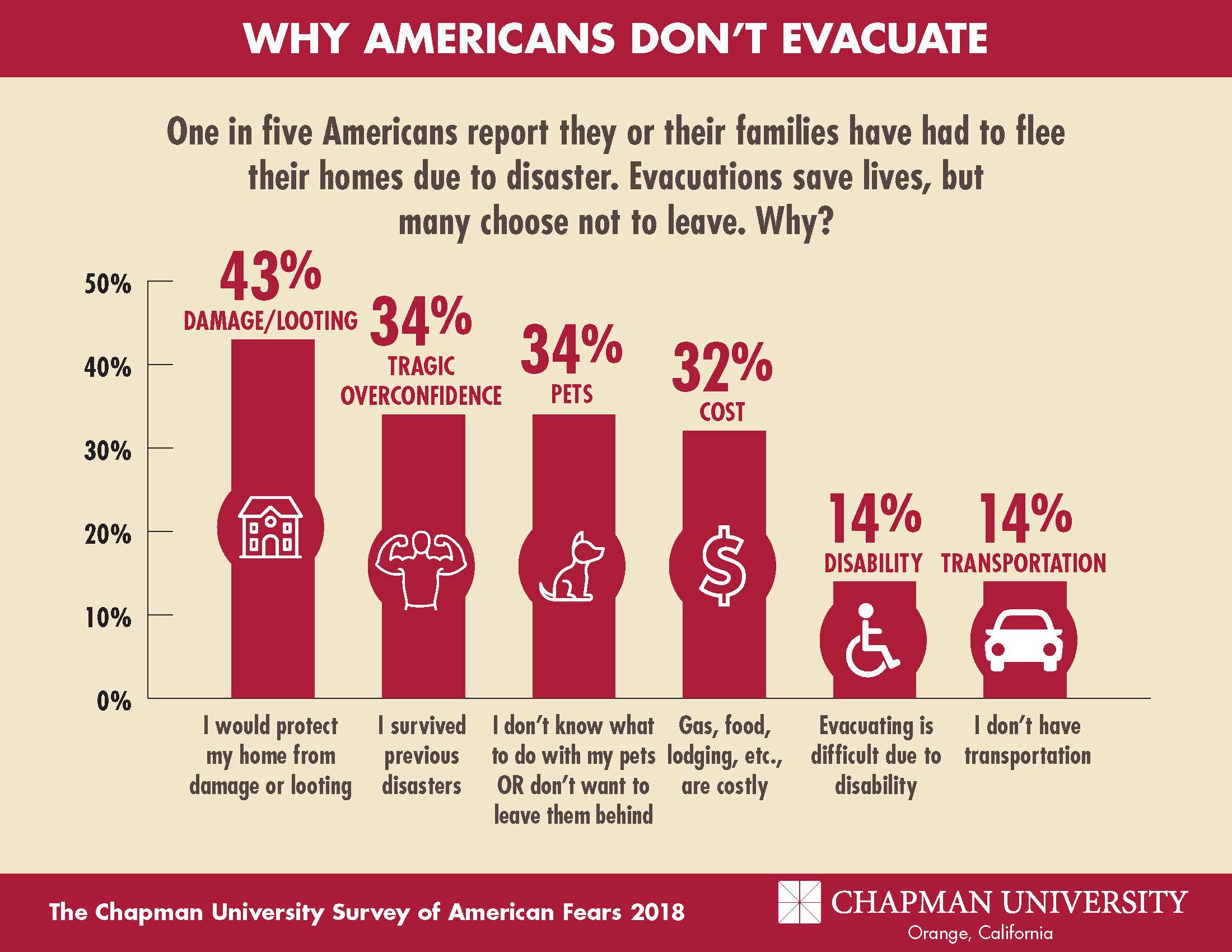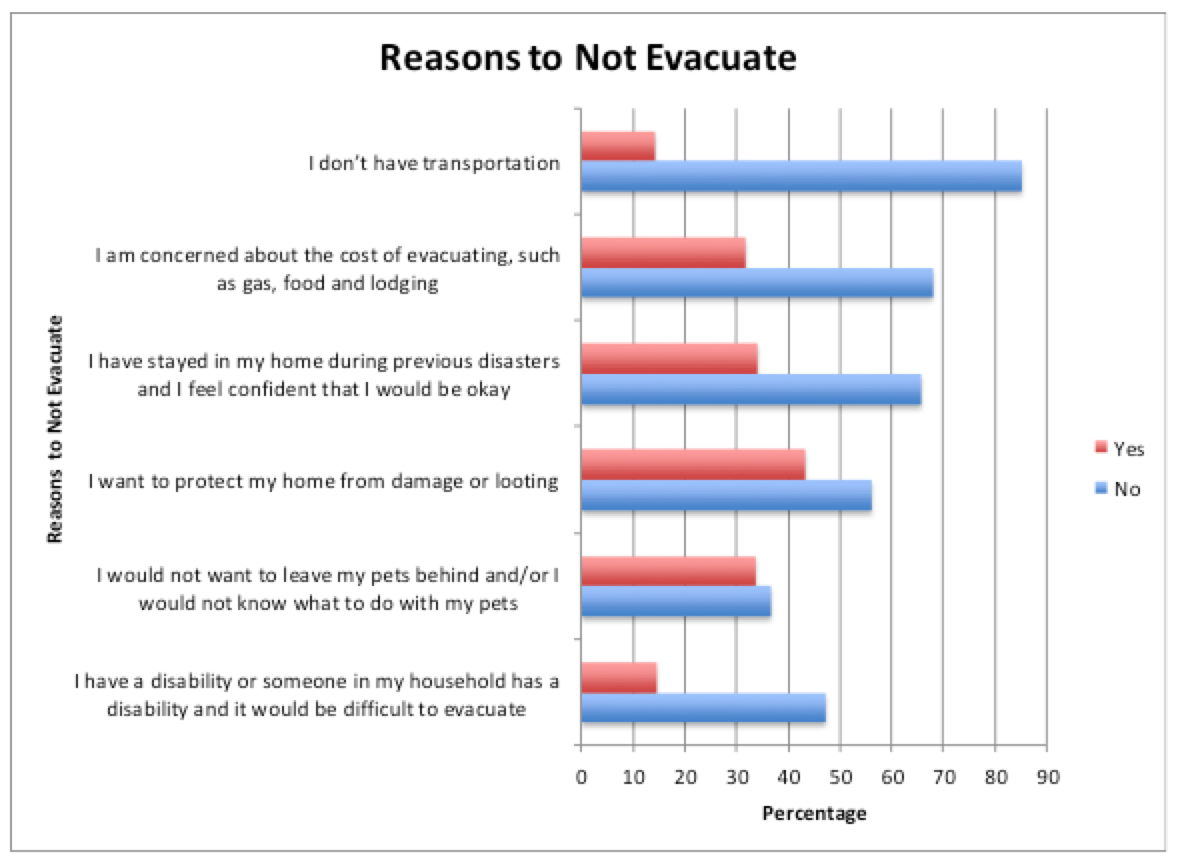Fleeing Death: Disaster Evacuations in America Chapman University Survey of American Fears
October 16, 2018
From devastating wildfires to killer hurricanes, nearly a quarter (21%) of America reports they or their families have had to flee their homes due to disaster. Evacuating one’s home is a heart wrenching choice, but it saves lives. Unfortunately, many Americans choose not to evacuate, even when authorities call for mandatory evacuations. The results are often tragic. Of the more than 1400 victims of Hurricane Katrina, about two-thirds died in their own homes from drowning or injury because they could not or would not evacuate.

Looting
Why do some Americans refuse to evacuate? The most commonly cited reason by 43% of Americans is that they want to protect their homes from looting. Research indicates that burglaries do increase following disasters, particularly in areas that are already prone to crime and in disasters where authorities are not able to adequately police the disaster zone.[1] Unfortunately, the desire to protect property can lead to otherwise preventable deaths in disaster ravaged areas.
Pets
Another reason people may not evacuate is the presence of pets, with 34% of Americans citing their unwillingness to leave pets behind or not knowing what to do with them. Research has shown that having multiple pets, dogs that live outdoors, or not having a cat carrier leads to a refusal to evacuate and puts both human and animal lives at risk. [2] To save lives, it is imperative that pet owners plan ahead and prepare for disasters by having leashes, carriers, and other pet supplies ready to go so that pets and their people can safely escape danger together.
Disability
For some 14% of Americans, having a disability or someone with a disability in the home presents an obstacle to evacuation. Experts have pointed out that disabled Americans in areas that are prone to regular occurring disasters, such as hurricanes, are more likely to be prepared in advance than those who live in states with less predictable disasters such as flooding and wildfire. [3] Preparing in advance with a go bag, adequately stocked with medication, food, water and cash is key, as is having a plan where to go and a support system to get there.
Transportation and Cost
The cost of gas, food and lodging gives 32% of Americans pause and some 14% report not having transportation at all. Such was the case in New Orleans, prior to Katrina, where emergency planners estimated at least 100,000 did not have access to personal transportation before the storm hit.
Tragic Overconfidence
Finally, 34% of Americans who have weathered storms in the past feel confident in their ability to survive without evacuating. This confidence can lead to preventable deaths. Following Hurricane Katrina, it was reported that, “At many of the addresses where the dead were found, their cars remained in their driveways, flood-ruined symbols of fatal miscalculation.”[4]
Mandatory Evacuations: Where to Go?
Most Americans have an idea of where they would go if a mandatory evacuation order were to be issued. Some 62% say they would evacuate to the home of friends or family and another 17% say they would opt for a hotel, while 11% would seek out a shelter. However, 11% of Americans say that if faced with a mandatory order to leave, they simply don’t know where to go.

[1] Frailing and Harper (2017)
[2] Heath et al (2001)
[3] Gerber, Norwood and Zakour (2010)
[4] Quoted in Failure of Initiative, U.S. House of Representatives (2006)
For more information and articles, visit www.chapman.edu/fearsurvey.

